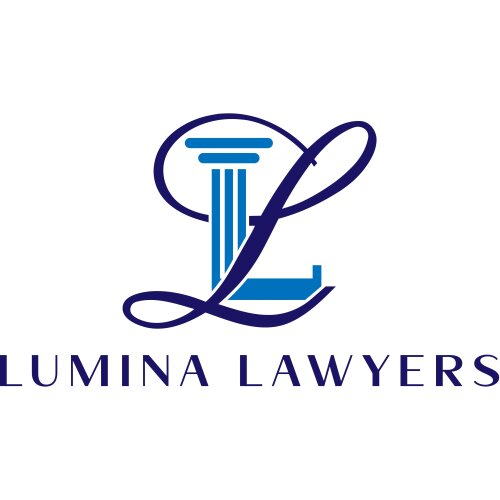Best Natural Resources Lawyers in Brampton
Share your needs with us, get contacted by law firms.
Free. Takes 2 min.
List of the best lawyers in Brampton, Canada
About Natural Resources Law in Brampton, Canada
Brampton, situated in the province of Ontario, has a wealth of natural resources that play a vital role in its economy and sustainability efforts. Natural resources law in Brampton pertains to the governance, use, management, and conservation of these resources, including water, minerals, forests, and land. The legal framework encompasses a wide range of activities, from mineral exploration to environmental protection, ensuring that the natural resources are managed responsibly and sustainably for future generations.
Why You May Need a Lawyer
People may require legal advice in the field of natural resources for various reasons. Common situations include:
- Disputes over land use or mineral rights.
- Compliance with environmental regulations and laws.
- Negotiations for resource extraction permits and licenses.
- Conservation efforts and environmental protection initiatives.
- Challenges related to Indigenous land claims.
- Litigation involving pollution or environmental damage.
- Development projects that impact natural habitats.
Local Laws Overview
In Brampton, natural resources are governed by a combination of federal, provincial, and municipal laws. Key aspects include:
- Ontario's Environmental Protection Act, which regulates pollution and protects the natural environment.
- The Provincial Policy Statement and Greenbelt Plan, which guide land use planning and resource management.
- The Aggregate Resources Act, overseeing the extraction of aggregates like sand, gravel, and stone.
- Conservation Authorities Act, facilitating watershed management and conservation strategies.
- Federal treaties and statutes related to Indigenous Peoples' rights and resource management.
Frequently Asked Questions
What are the main natural resources in Brampton?
Key natural resources in Brampton include land and forests, water resources, and aggregates such as sand and gravel.
How are land use disputes resolved in Brampton?
Land use disputes are typically resolved through municipal adjudication, legal negotiation, or by taking the matter to court if necessary.
What is the role of conservation authorities?
Conservation authorities manage watersheds, prevent flooding, and promote the sustainable use of natural resources while conserving natural habitats.
Do I need a permit to extract resources in Brampton?
Yes, extracting most natural resources requires permits, adhering to specific regulations under the Aggregate Resources Act, Environmental Protection Act, or local bylaws.
How can I ensure compliance with environmental laws?
Staying informed about the latest regulations, conducting environmental assessments, and consulting with legal experts can help ensure compliance with environmental laws.
Can Indigenous land rights impact resource extraction?
Yes, Indigenous land rights can significantly impact resource extraction projects. Respect for Indigenous treaties and consultation with Indigenous communities is essential.
Are there any exceptions to land use regulations?
Exceptions or variances to land use regulations may be granted under specific conditions, usually requiring application and justification to the local municipal authority.
What steps should I take if my property is affected by pollution?
If your property is affected by pollution, document the damage, report it to local authorities, and seek legal advice to explore potential compensation or remediation.
What is an environmental assessment?
An environmental assessment evaluates the potential impacts of a proposed project on the natural environment and includes steps to mitigate negative effects.
How can I challenge an unfair natural resources decision?
Challenging an unfair decision can involve appealing through administrative processes or seeking judicial review with the assistance of a lawyer.
Additional Resources
For more information and assistance, consider consulting the following resources:
- The Ontario Ministry of Natural Resources and Forestry
- Conservation Halton and Credit Valley Conservation (local conservation authorities)
- Environmental Commissioner of Ontario
- Local municipal planning departments in Brampton
Next Steps
If you need legal assistance in natural resources, consider the following steps:
- Identify the specific legal issues or concerns you have related to natural resources.
- Research and contact a lawyer specializing in natural resources and environmental law in Brampton.
- Prepare all necessary documentation, such as permits, contracts, and correspondence related to your issue.
- Schedule a consultation to discuss your situation and the best course of legal action.
- Stay informed and proactive in understanding your rights and responsibilities regarding natural resources in Brampton.
Lawzana helps you find the best lawyers and law firms in Brampton through a curated and pre-screened list of qualified legal professionals. Our platform offers rankings and detailed profiles of attorneys and law firms, allowing you to compare based on practice areas, including Natural Resources, experience, and client feedback.
Each profile includes a description of the firm's areas of practice, client reviews, team members and partners, year of establishment, spoken languages, office locations, contact information, social media presence, and any published articles or resources. Most firms on our platform speak English and are experienced in both local and international legal matters.
Get a quote from top-rated law firms in Brampton, Canada — quickly, securely, and without unnecessary hassle.
Disclaimer:
The information provided on this page is for general informational purposes only and does not constitute legal advice. While we strive to ensure the accuracy and relevance of the content, legal information may change over time, and interpretations of the law can vary. You should always consult with a qualified legal professional for advice specific to your situation.
We disclaim all liability for actions taken or not taken based on the content of this page. If you believe any information is incorrect or outdated, please contact us, and we will review and update it where appropriate.








